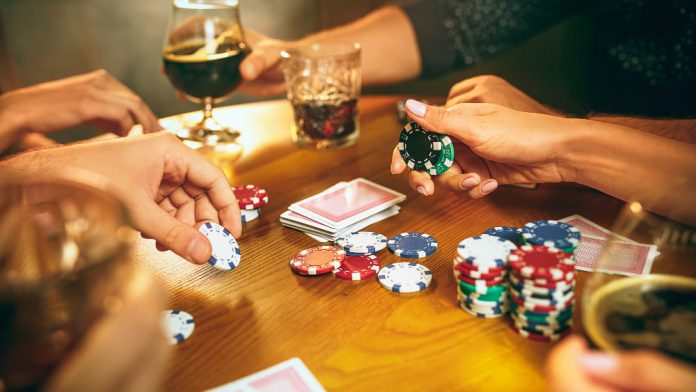In any recession, there are winners and losers when it comes to business. Some die, whilst others thrive. Think about the boom for debt collectors as an obvious starter. Then there’s the rise in alcohol consumption due to people’s need for a boost in bad times as they feel evermore anxious and depressed. Frozen food sales increase as people look for cheaper alternatives to fresh food, and as businesses close, the demand for solicitors and accountants increases.
But is the gambling industry really recession-proof? On the face of it, the idea that people turn to ways to earn quick cash certainly seems logical.
A recession is defined as a period of economic decline where the Gross Domestic Product falls for two consecutive quarters. In other words, there’s a lot less money sloshing about.
Thankfully, recessions aren’t that regular of an occurrence. The last one was between December 2007 and June 2009 due to the collapse of the housing market. In fact, there have only been four global recessions since World War II, in 1975, 1982 and 1991.
So, what happened to the gambling market back in 2009?
Global Betting and Gaming Consultants, GBGC, concluded that: “No sector of the gambling industry is immune from the effects of the global recession, but GBGC’ research has shown that some are better able to mitigate its effects than others through new technology, innovation, and benefitting from new regulation.”
GBGC’s view back in 2011 was that essentially sports betting does better in a recession than casinos because of the high number of global sporting events and the subsequent large volume of public interest globally, whereas games of chance (including scratchcards) took a hit of 10% on pre-recession levels.
New regulations opened new sports markets in certain countries, all of which coincided with tech improvements, especially around in-play betting which helped boost the sports betting market. GDBC actually concluded that casinos are actually one of the hardest-hit sectors in a downturn!
And, of course, if that is true, the opposite is also true.
A Study in the Journal of Gambling studies back in 2012 confirmed a link between gambling strength and economic strength.
The report essentially found that gambling revenue grows during economic expansion and stagnates during a recession. In other words, there’s no growth. Only the Lottery appeared to be so-called recession-proof.
This sounds counterintuitive, given that low-self esteem, boredom, anxiety and stress can all contribute to people gambling more.
But what the report concludes is pretty obvious when you think about it. People have less money to spend; they don’t necessarily cease gambling altogether; instead, they use what little money they have on low-stake offers that carry the potential to win big money i.e. lotteries.
Here a distinction needs to be made between average players and people with gambling addictions. The vast majority of players will curb their spending as they would in every other aspect of daily life.
All of this research is backed up in another Journal on Scholar Works, which summarised that casinos are more exposed in downturns because of their provision of accommodation.
All of this raises a very relevant point!
Back in 2009, the casino world was a very different beast. There were a lot fewer online casinos and more land-based casinos.
The market has shifted more online with an ever-increasing portfolio of casinos to play on virtually, so the data analyzed back when the last global recession took place can’t be viewed as a litmus paper for another recession today.
For the answer to that, we’ve looked back once again at research by GBGC, who argue that consumer behaviour will change during a recession and “Staying In” becomes the new “Going Out”.
We’ll want to spend less by not going out, but we’ll also want to be entertained, which makes online casinos perfectly placed in terms of accessibility and value for money.
But again, there will be winners and losers.
Every online casino out there has a predetermined target market in mind as part of its business model. It could be English women in their 30s, European couples in their 60s or young men in their 20s.
That’s why all casinos look different and vary their products accordingly.
The test in any recession will be the way the recession affects that particular casinos target market. Young men, with once disposable income, may be unskilled workers unable to find work in a recession. Couples who once liked a flutter will choose to prioritise food and energy bills for their young family. Baby boomers with potentially endless amounts of dough in the bank may be unaffected and may even bet more out of boredom.
This is the great unseen challenge for online casinos when the recession strikes, if a recession strikes.
Some will adapt quickly, some will fail, and others will prosper.
The thinning out of business models on a global scale happens in every recession.
And when the dust settles, the academics can move in to analyse the pieces.
Disclaimer: This article contains sponsored marketing content. It is intended for promotional purposes and should not be considered as an endorsement or recommendation by our website. Readers are encouraged to conduct their own research and exercise their own judgment before making any decisions based on the information provided in this article.


























![“Does Everyone Hear Me OK?”: How to Lead Virtual Teams Effectively iStock-1438575049 (1) [Converted]](https://www.europeanbusinessreview.com/wp-content/uploads/2024/11/iStock-1438575049-1-Converted-100x70.jpg)




